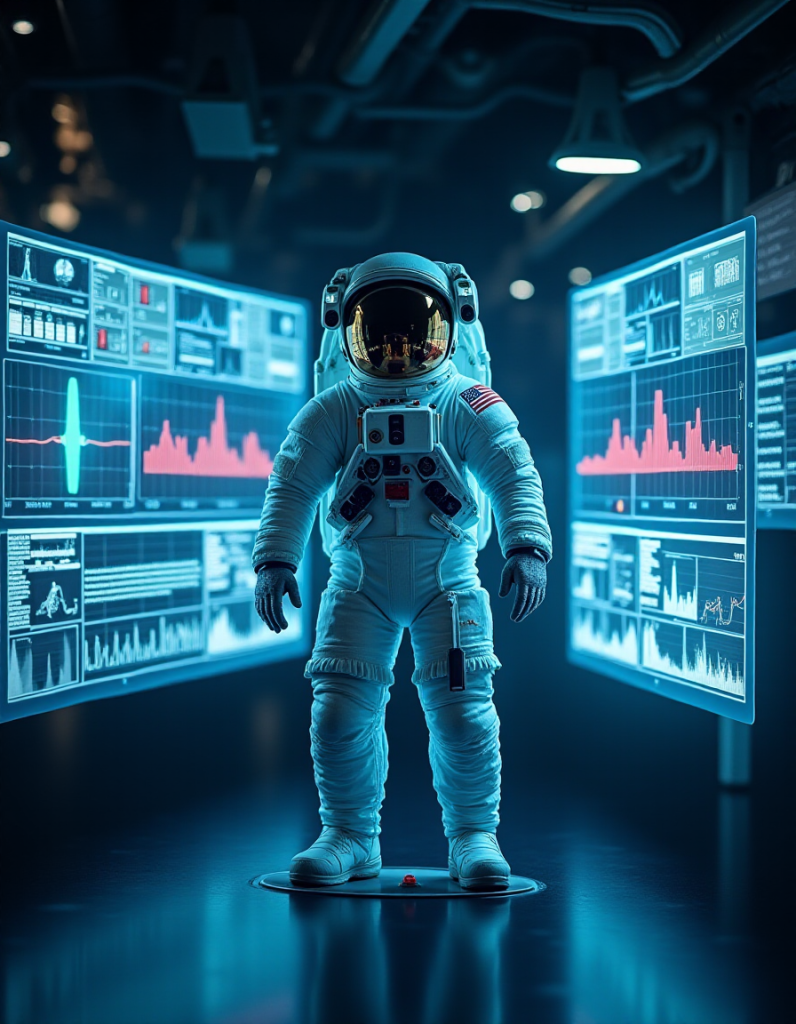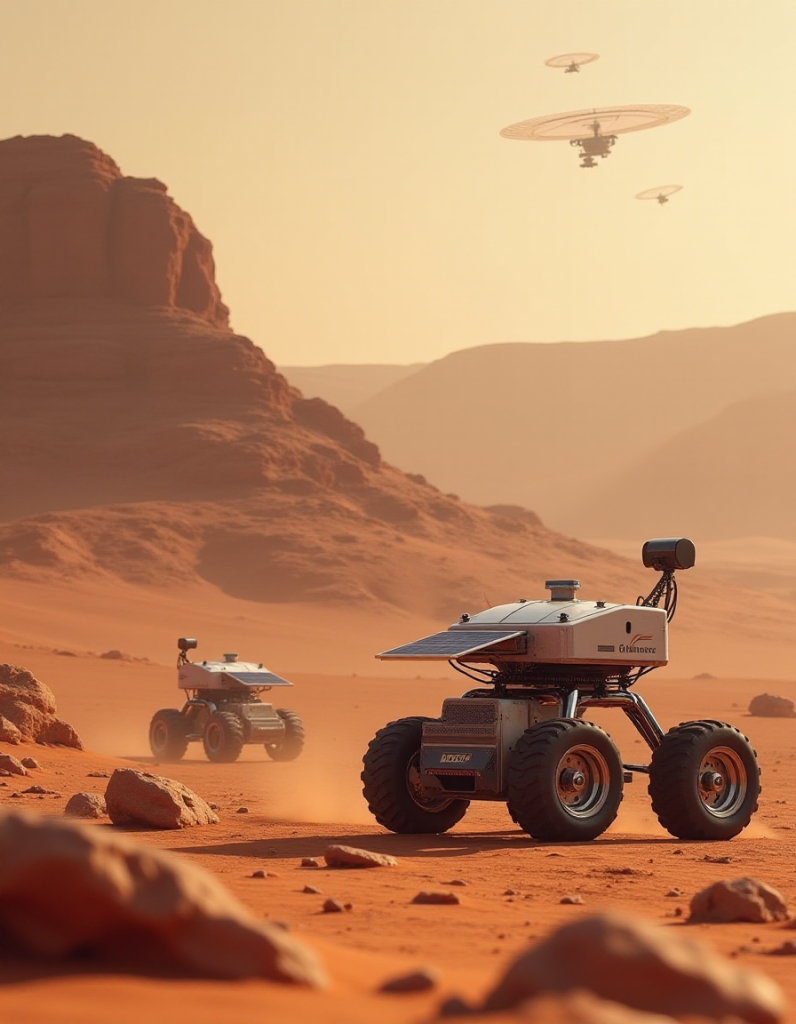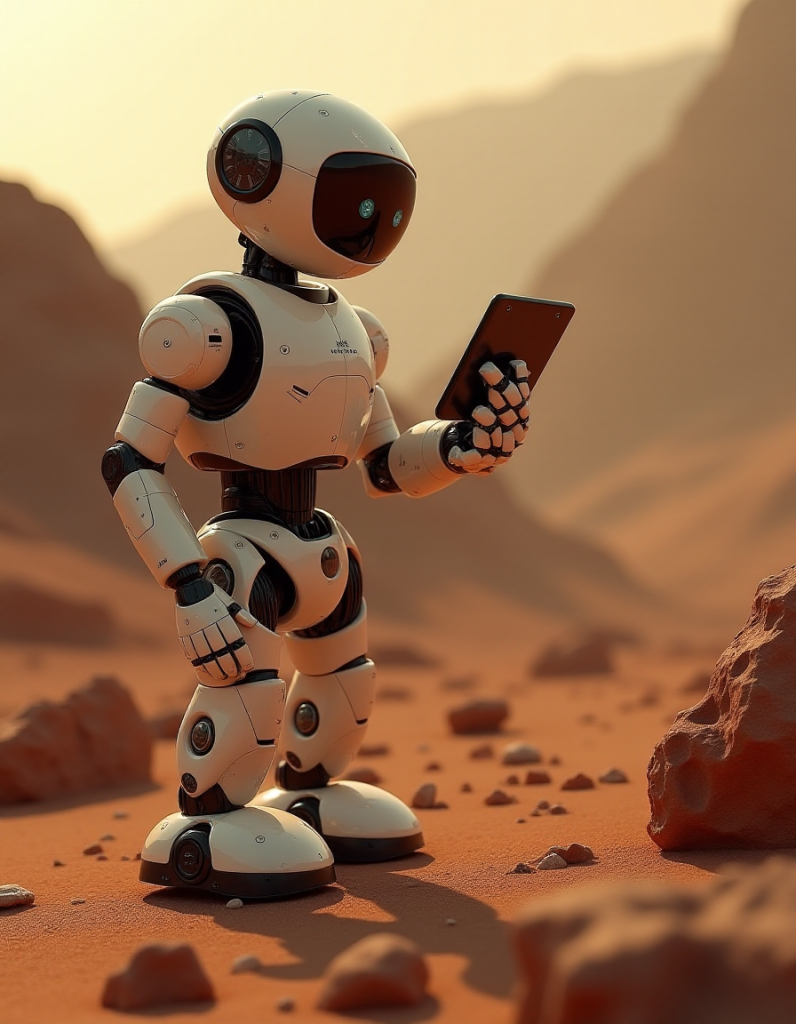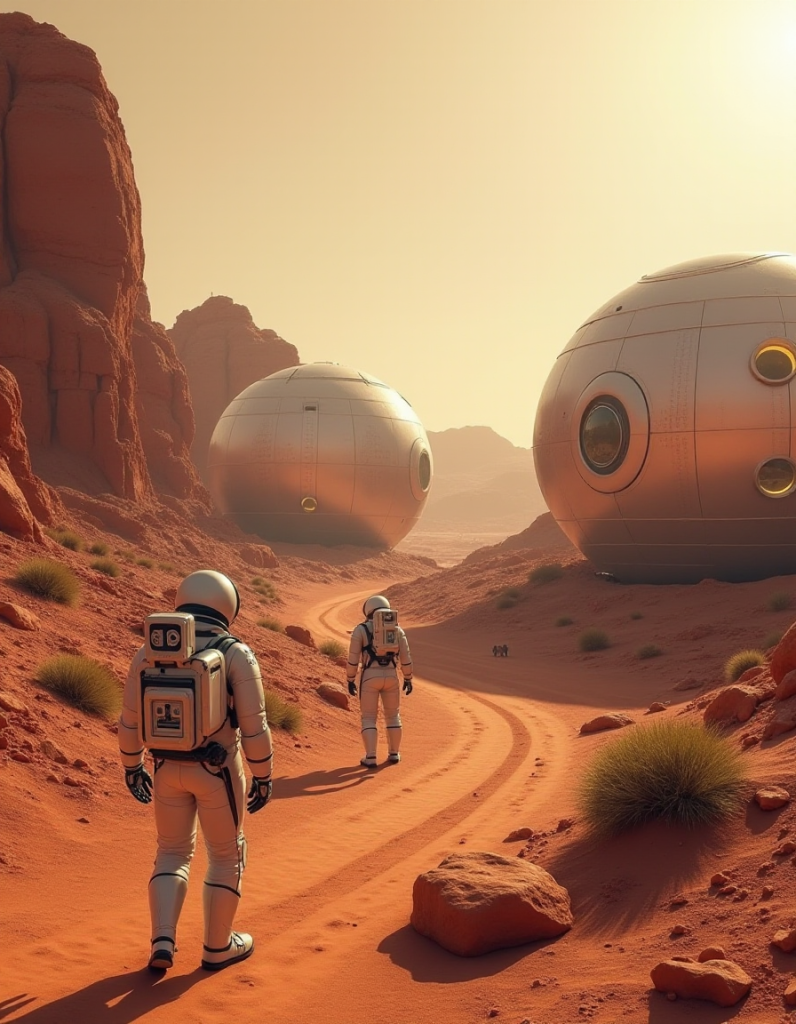Exploring Mars is no longer just a concept from science fiction—it is emerging as a realistic objective, thanks in large part to advancements in artificial intelligence. This blog will examine how AI is crucial in facilitating not only safe travel to the Red Planet but also the establishment of a sustainable human presence in its challenging environment.

Enhancing Space Travel
The journey to Mars is a formidable endeavor, involving an approximately seven-month voyage over a distance exceeding 140 million miles. AI can play a critical role from the outset.
- Navigation Assistance: AI systems excel at processing extensive datasets to determine the safest and most efficient travel routes through space. They analyze factors such as gravitational forces and potential disruptions like asteroid fields. Additionally, these systems can predict unforeseen events, including solar flares or space debris, enabling real-time trajectory adjustments to keep the spacecraft on course.
- Health Monitoring: Ensuring the well-being of astronauts during this prolonged journey is a top priority. AI technologies, akin to those used in hospitals on Earth, offer real-time health monitoring capabilities in space. These systems can detect and address health anomalies swiftly, thereby preventing minor issues from escalating into serious medical emergencies.

- AI-Assisted Safe Landing: Landing on Mars poses significant challenges due to its thin atmosphere, which complicates rapid deceleration. AI can contribute significantly to overcoming this obstacle. Autonomous landing systems conduct real-time analyses and adjustments, ensuring a secure landing. By assessing potential landing areas and avoiding hazardous terrains, these systems operate autonomously. This is essential given the communication delay between Earth and Mars, which precludes real-time human oversight.
Survival on Mars: AI as a Vital Support
The Martian environment is harsh, characterized by extreme cold, minimal atmospheric pressure, and a lack of breathable oxygen. AI technologies are essential in addressing these survival challenges.
- Habitat Management: AI autonomously regulates essential life-support systems within Martian habitats, ensuring optimal conditions through the management of temperature, oxygen levels, and food supplies. These automated processes maintain conditions necessary for human survival.

- Resource Optimization: AI enhances resource utilization by converting constraints into opportunities. It can streamline water recycling, facilitate hydroponic crop cultivation, and extract critical resources such as water and oxygen from the Martian soil.
- Robotics and Drones: AI-driven robots and drones can perform tasks too dangerous for humans. These machines conduct exploration, install solar energy systems, and repair equipment, safeguarding the well-being of the human crew.

- Autonomous Decision-Making Given the considerable distance from Earth, communication delays with Mars are inevitable. AI enables autonomous operation of systems on Mars, empowering them to make decisions independently of Earth-based mission control, thus boosting efficiency and responsiveness.
The Role of AI in Mars Exploration
The integration of artificial intelligence in Mars exploration is not just futuristic but pivotal. Here are a few key roles AI plays in unraveling the mysteries of the Red Planet:
- Data Processing and Analysis: The vast amount of data collected by Mars missions is efficiently handled via AI systems. Machine learning algorithms sift through this data to identify patterns, anomalies, and points of interest, greatly speeding up analysis and increasing scientific yield.

- Predictive Maintenance: AI helps ensure the longevity and functionality of equipment and instruments on Mars. Predictive algorithms analyze sensor data to preemptively identify and address potential mechanical issues before they can interfere with mission objectives.
- Scientific Experimentation and Discovery: AI systems autonomously conduct scientific experiments, prioritize research goals, and even select specimens for analysis. By doing so, AI optimizes the scientific return from various missions, making tailored discoveries based on real-time conditions.

AI’s Role in Future Colonization
AI’s role extends beyond merely facilitating the journey to Mars; it is fundamental in establishing a sustainable human presence. As humanity envisions expanding beyond Earth, AI remains a pivotal factor in potentially transforming Mars into a viable second home.
In summary, while AI does not usurp the role of astronauts, it markedly enhances their capacity to participate in this groundbreaking endeavor of interplanetary exploration. AI-driven innovations are crucial in realizing the vision of human settlement on Mars, turning distant dreams into impending realities.
We invite your perspectives on the exciting potential AI holds for space exploration. Please share your insights and enthusiasm in the comments below.


Yavor
The featured video and images were all generated, using Tangram Holo, try it for free at https://app.tangramholo.com/